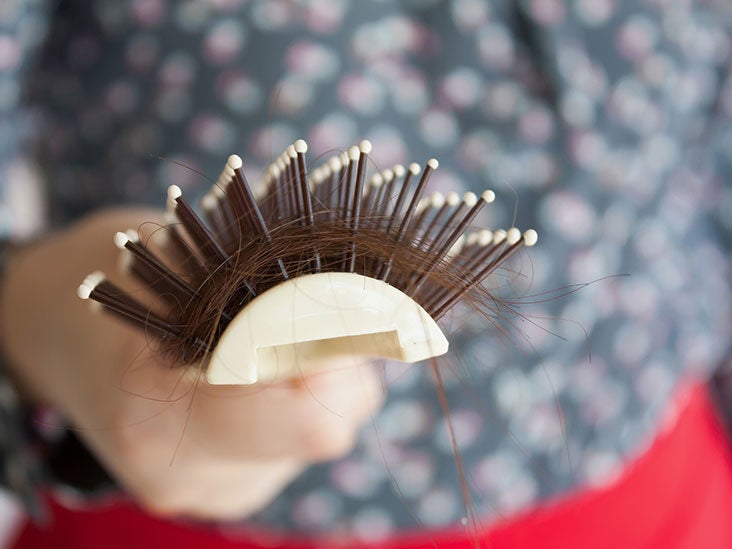Female pattern baldness is largely thought to happen due to genetics. Nevertheless, it may also develop due to an inherent condition that affects the production of the hormone androgen. Androgen is a hormone that shows a role in pattern baldness. Tumors of the pituitary gland or ovary, which exudes androgen, may also take to to hair baldness.
Other major causes of Female pattern baldness in women include:
- Autoimmune disease: Alopecia areata is an uncommon autoimmune disorder that causes the immune system to attack the hair follicles, that consequently takes to hair loss.
- Medication: some of the medications, like those that are used to treat cancer, can cause hair loss as a counter effect. Nevertheless, hair usually regrows once a person has stopped consuming medicines.
- Illness: Hair loss can occur after a significant illness, like a severe infection, or some surgical operation.
- Traction alopecia: This is hair loss that happens when a person frequently wears hairstyles that pull the hair much tightly.
Treatments that we recommend for female pattern baldness can help prevent future hair loss and may result in regrowth of some hair. In many of the cases, lengthy treatment is required to prevent hair loss from recurring. Let us reckon some of them:
1. Minoxidil
Minoxidil is a topical medicinal drug that is used to treat hair loss in both men and women. The solution is applied evenly to the scalp every day and may stimulate hair growth, as well as prevent their further thinning.
Solution of Minoxidil takes around 6 months to a year to produce visible results and does not work for everyone. This can also cause dryness, chromatic colour, and itchiness as side effects. Hair loss may come back after a person stops using the product.
2. Oral medication
One of the most common oral medications for this spironolactone, which is a diuretic in nature. Diuretics are known to remove excess water from the body. The medication may also block the exhibition of androgen, that prevents hair loss and help hair regrow. This causes dry mouth, nausea, and dizziness as major side effects.
Women who are pregnant should never go for spironolactone due to a possibility that it might cause congenital disabilities.
3. Hair transplant
A hair transplant is used when you want to fix hair to an area of the scalp where it is missing.
During the transplant, your dermatologist removes hair from an area with healthy hair growth and transplants it to another area where the hair is missing. The spot from which the doctor transplants the hair usually remains unswayed by hair loss. A person is given local anesthetics for several hours, to forbid pain.




0 comments:
Post a Comment